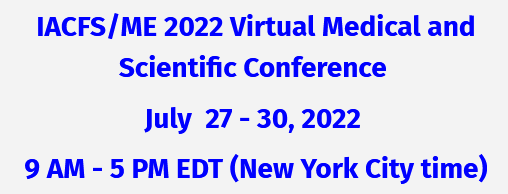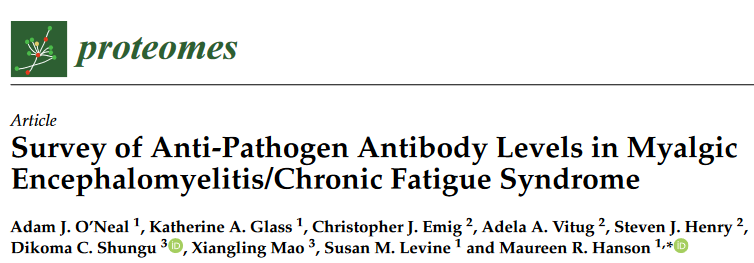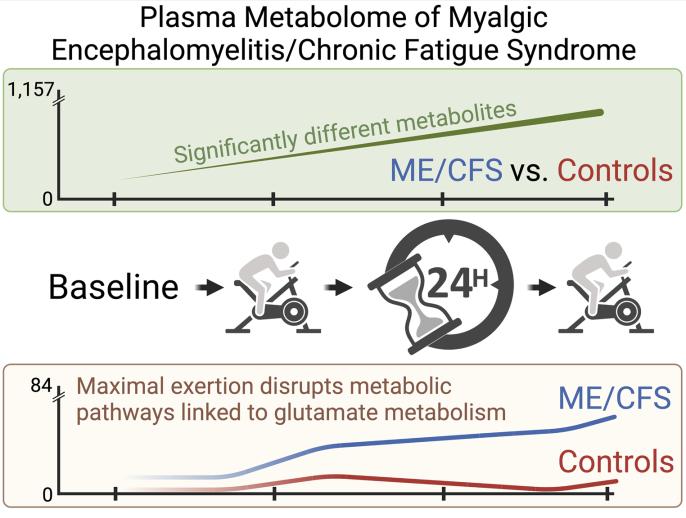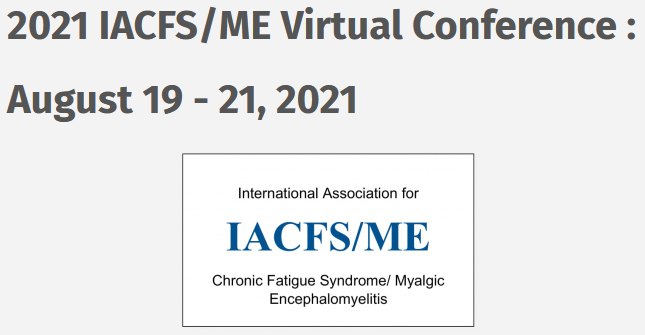Fatty Acid Oxidation in ME/CFS Immune Cell Populations
A new publication from the Center on fatty acid oxidation in immune cells has appeared today. Jessica Maya is the lead author of Altered Fatty Acid Oxidation in Lymphocyte Populations of Myalgic Encephalomyelitis/Chronic Fatigue Syndrome published in the International Journal of Molecular Sciences.
As discussed in the paper, there is more evidence for abnormal immunometabolism in ME/CFS. Maya utilized her expertise in flow cytometry and Seahorse flux analysis to demonstrate this dysfunction. She isolated natural killer (NK), helper T (CD4), and cytotoxic T (CD8) cell populations from both healthy donors and people with ME/CFS. These immune cell populations were studied in their circulating state and after stimulation. The stimulation process aims to mimic an immune response. Maya’s findings showed that all three of the cell types have an increased use of fats to power their activities when compared to healthy donors. Her results show that ME/CFS immune cells have a greater reliance on fats for energy when they are stimulated. Overall, these findings support the presence of an altered metabolic state in certain immune cells in individuals with ME/CFS.
Maya outlines these findings in her graphical and video abstracts inserted below.
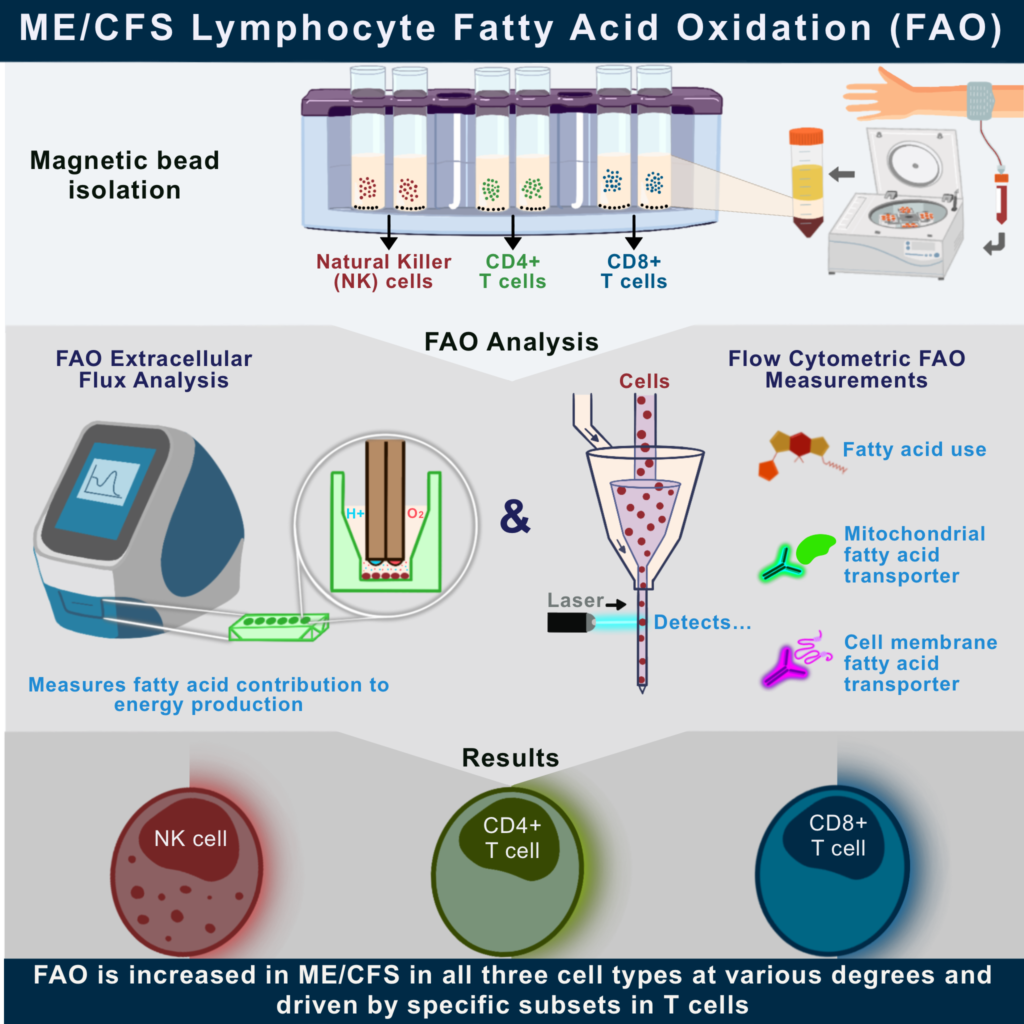
A commentary by Andrew Grimson about the single-cell RNA-seq preprint from his lab
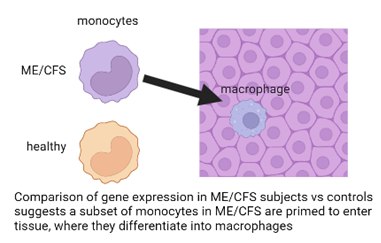
IACFS/ME’s October 2022 Journal Club features Arnaud Germain
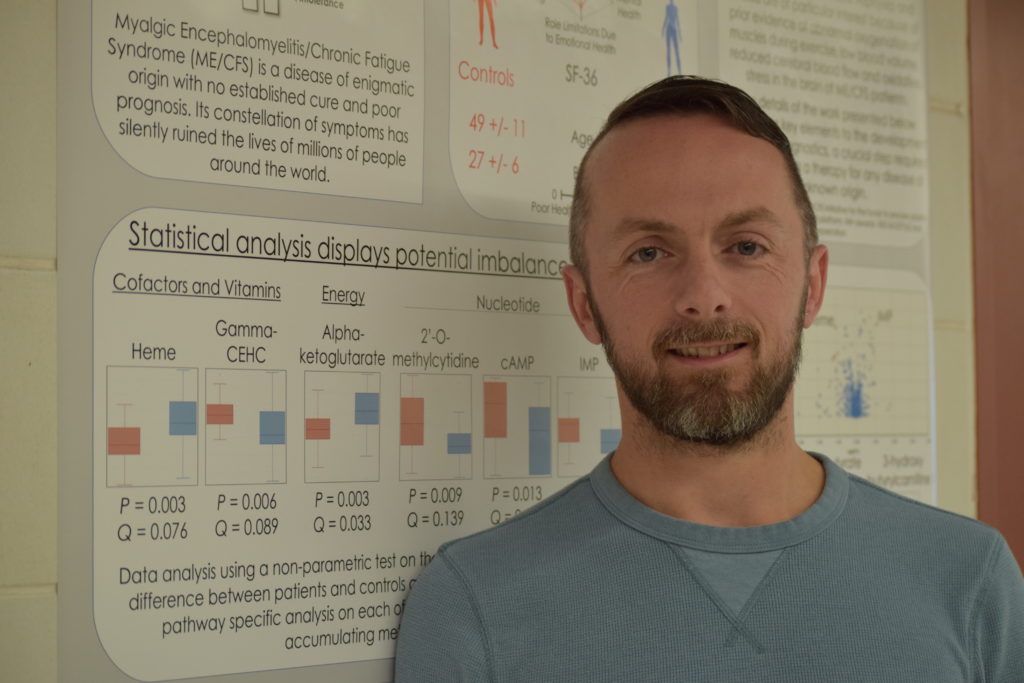
Arnaud Germain, Center investigator, was featured at IACFS/ME’s October 2022 Journal Club. Germain presented and discussed his longitudinal ME/CFS metabolomics publication.
Head over to YouTube to watch the video using this link.
IACFSME Conference 2022
IACFSME held a virtual medical and scientific research conference on July 27-30, 2022. Our Center presented several talks and participated in the poster session at the conference. Center members Andrew Grimson, Arnaud Germain, Betsy Keller, Geoff Moore, Jessica Maya, and Katie Glass gave oral presentation on topics ranging from immune cell exhaustion to post CPET recovery. Postdoctoral associate, Ludovic Giloteaux, presented a poster on extracellular vesicle proteins in plasma. Details about the conference agenda can be found on the event’s website.
We would also like to announce that Candace Receno, a new collaborator at Ithaca College, and Jessica Maya received the NIH NINDS travel award at this year’s meeting. Congratulations to Candace and Jessica!
Survey of Anti-Pathogen Antibody Levels in ME/CFS
The Center would like to announce a serology publication that is open access in Proteomes.
This study, led by Adam O’Neal, analyzed plasma antibodies to 122 different pathogen antigens in a case-control comparison including 103 individuals. The cohort of 59 ME/CFS and 44 healthy controls included both female and male participants. The anti-pathogen antibody assays were performed by Augmenta Bioworks. Although this study did not find one particular pathogen associated with ME/CFS, sex-based differences were uncovered. Check out this publication (link above) for more information.
International ME/CFS Awareness Day 2022: metabolite disruption in ME/CFS
For International ME/CFS Awareness Day, we would like to announce the official publication of a large metabolomics study from our Center. The work led by Arnaud Germain, PhD, describes results from a longitudinal plasma metabolite study associated with a 2-day cardiopulmonary exercise test (CPET). Over 100 individuals, including both females and males, were assayed before and after both days of the 2-day CPET. The article is open access in the journal JCI Insight. The quote below, from this publication, does an excellent job at summarizing the study.
Our longitudinal study design has allowed us to identify a number of pathways that diverge between healthy individuals and those with ME/CFS 24 hours after an exercise challenge, at which time patients typically experience PEM. Inability to recover properly after exertion is one of the most disabling symptoms of ME/CFS. Our study provides insight into the metabolic changes that are inimical to proper response to physical effort.
ME/CFS Research Network Webinar Series: ENID Center Update and Panel Discussion
Organized by the Community Advisory Committee of the NIH ME/CFS Centers Network, Hanson’s overview of the ENID Center is followed by a panel discussion led by Susan Taylor-Brown, a patient advocate for our Center and member of the Network’s Community Advisory Committee. Andrew Grimson (single cell transcriptomics lead), Jessica Maya (immune cell metabolism investigator), and Ludovic Giloteaux (extracellular vesicles investigator) join Hanson and Taylor-Brown for a discussion of our research. Topics such as immune dysfunction, extracellular vesicles, and gene expression are covered in this video.
Hanson speaks at MassME 2021 Annual Meeting
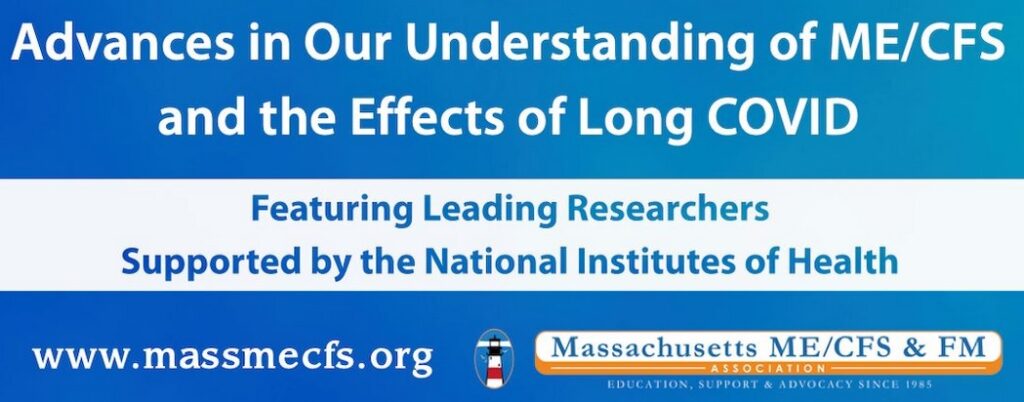
The Massachusetts ME/CFS & FM Association held their annual meeting on Oct. 23, 2021. The meeting’s title, Advances in Our Understanding of ME/CFS and the Effects of Long COVID, highlights the theme of this event. Dr. Maureen Hanson, Center Director, was invited to speak at this meeting. Hanson’s talk provided a summary of ongoing work at the ENID Center. Mass ME/CFS & FM has uploaded the talks from this meeting to YouTube. You can watch Hanson’s full talk below, and the complete playlist of all talks from the meeting can be found here.
Hanson and Keller present talks at an interdisciplinary fatigue workshop
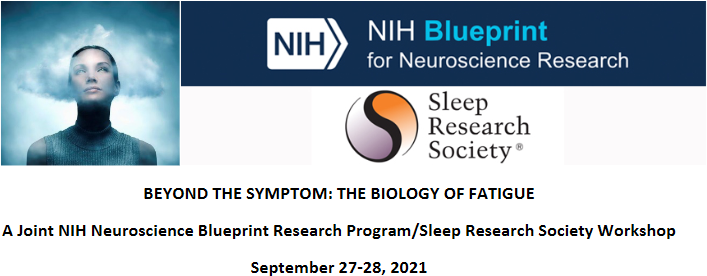
Maureen Hanson, Center Director, and Betsy Keller, Clinical Core Co-lead, presented at the Beyond the Symptoms: The Biology of Fatigue workshop. The workshop was co-sponsored by the NIH Neuroscience Blueprint Research Program and Sleep Research Society, and it took place on September 27-28, 2021. Hanson provide insight into fatigue from the perspective of immune dysfunction in ME/CFS. Keller drew from her experience in exercise physiology to elaborate on post-exertional malaise in ME/CFS.
Detailed meeting information including the agenda can be found on the event website. Recordings of the meeting are freely available on NIH VideoCast for Day 1 and Day 2, separately.
Center participates in IACFS/ME conference 2021
The International Association for Chronic Fatigue Syndrome / Myalgic Encephalomyelitis (IACFS/ME) held a virtual international scientific conference on August 19-21, 2021. Several members of our Center participated in this meeting by presenting either an oral or a poster presentation. In particular, postdoctoral associates, Arnaud German, Ph.D., and Ludovic Giloteaux, Ph.D., gave oral presentations on the impacts of a two-day CPET on metabolomics and extracellular vesicle proteomics, respectively. John Chia, M.D., gave two presentations on the implications of COVID-19 and enterovirus infections on ME/CFS.
Additionally, Adam O’Neal, Jessica Maya, and Paul Munn, Ph.D. presented posters at the conference. O’Neal presented work from his recent review on the enterovirus theory in ME/CFS. Maya showed recent findings on her immune cell metabolism experiments. Lastly, Munn displayed the progress he has made in creating an integrative database platform for the Center.
If you are interested in watching the oral presentations, recordings can be purchased on the conference website. Note that the recordings will only be available until October 22, 2021. Detailed information, including the full conference schedule, can be found on the conference website.
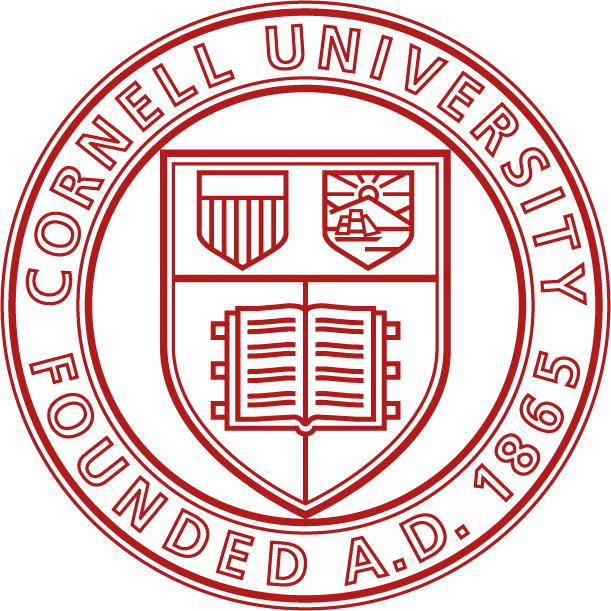 Center for Enervating NeuroImmune Disease
Center for Enervating NeuroImmune Disease

